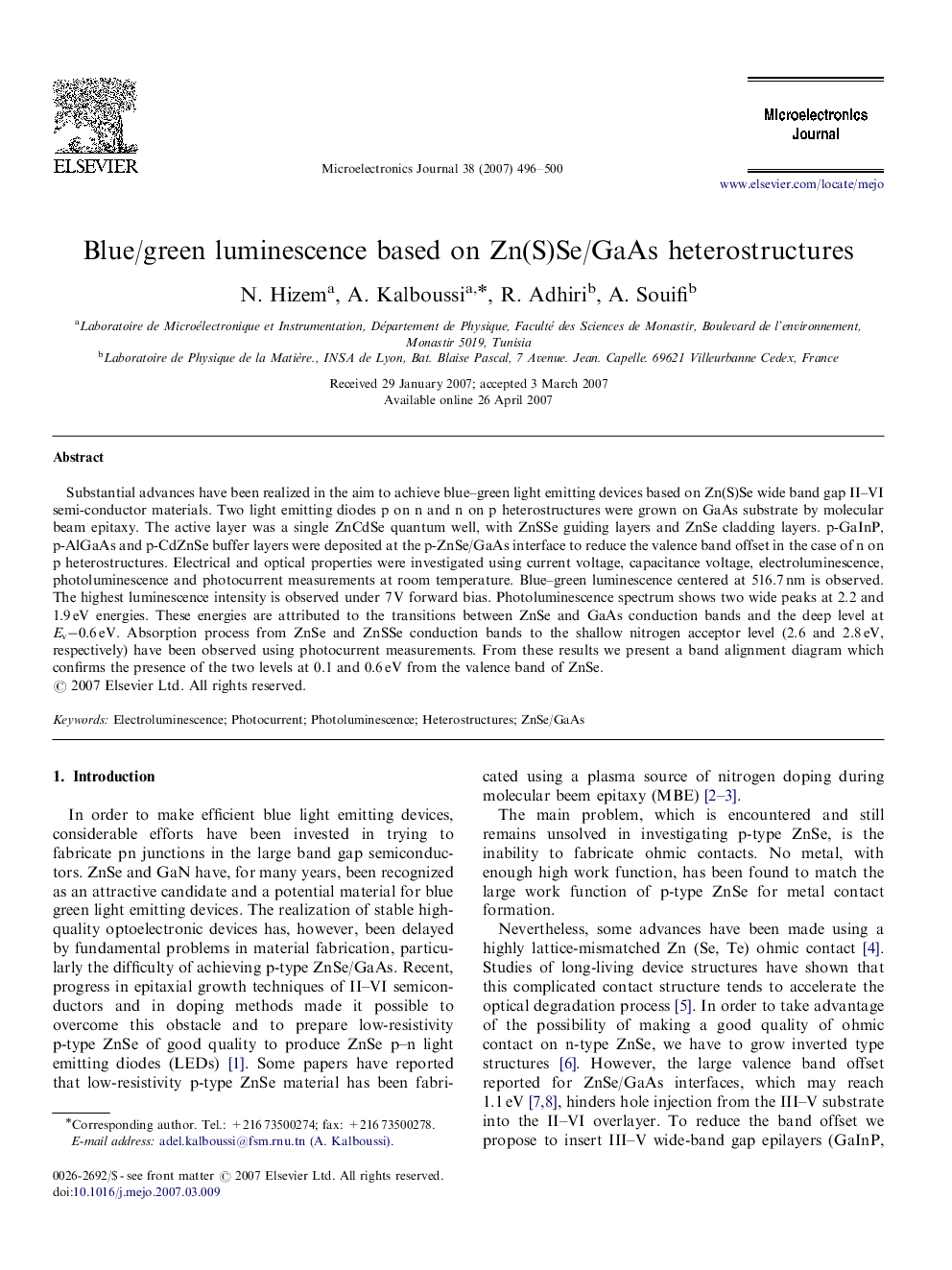| کد مقاله | کد نشریه | سال انتشار | مقاله انگلیسی | نسخه تمام متن |
|---|---|---|---|---|
| 546651 | 1450489 | 2007 | 5 صفحه PDF | دانلود رایگان |

Substantial advances have been realized in the aim to achieve blue–green light emitting devices based on Zn(S)Se wide band gap II–VI semi-conductor materials. Two light emitting diodes p on n and n on p heterostructures were grown on GaAs substrate by molecular beam epitaxy. The active layer was a single ZnCdSe quantum well, with ZnSSe guiding layers and ZnSe cladding layers. p-GaInP, p-AlGaAs and p-CdZnSe buffer layers were deposited at the p-ZnSe/GaAs interface to reduce the valence band offset in the case of n on p heterostructures. Electrical and optical properties were investigated using current voltage, capacitance voltage, electroluminescence, photoluminescence and photocurrent measurements at room temperature. Blue–green luminescence centered at 516.7 nm is observed. The highest luminescence intensity is observed under 7 V forward bias. Photoluminescence spectrum shows two wide peaks at 2.2 and 1.9 eV energies. These energies are attributed to the transitions between ZnSe and GaAs conduction bands and the deep level at Ev−0.6 eV. Absorption process from ZnSe and ZnSSe conduction bands to the shallow nitrogen acceptor level (2.6 and 2.8 eV, respectively) have been observed using photocurrent measurements. From these results we present a band alignment diagram which confirms the presence of the two levels at 0.1 and 0.6 eV from the valence band of ZnSe.
Journal: Microelectronics Journal - Volume 38, Issues 4–5, April–May 2007, Pages 496–500